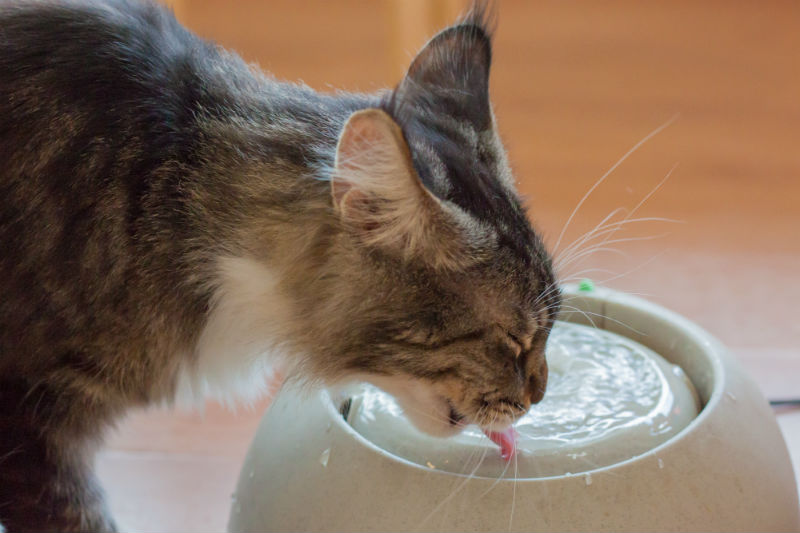As a veterinarian, probably the most common problem I see in older kitties is chronic kidney disease. Typically, owners say they have noticed their kitties drinking more water, producing more urine in the litterbox, and they may have noticed their companion getting thinner. In my experience, the first thing people are aware of is the increased need for cleaning the litterbox, and the large volume of “clumps” of litter. Most people don’t realize that by the time symptoms like this develop, cats have lost two-thirds of the functional capacity of their kidneys! This generally can’t be regained; once that capacity is gone, it’s gone for good.
What is chronic kidney disease? The kidneys are responsible for filtering waste products out of the blood. This waste is then released into the urine. Cats with kidney disease have kidneys that are not functioning properly. The waste products accumulate in the bloodstream, making them feel sick. Chronic kidney disease usually occurs slowly, over a period of time and can be deadly for cats.
What causes kidney disease? We are generally not able to determine the cause. Some causes are toxins, like lilies and antifreeze, high blood pressure, genetic abnormalities, infections, cancer, and autoimmune problems. If the cause can be determined (such as in high blood pressure), it can help guide our treatment.
How do we treat kidney disease? Many cats can live for many months, even years, with compromised kidneys. Dietary management may slow the progression. There are many foods your veterinarian can recommend, based on your kitties blood work and the severity of the disease. The most important thing is finding a diet your cat will eat. Maintaining a good weight is ideal. Often, a yummy canned food that is low in phosphorus is recommended. Some cats will tolerate having some water mixed into this, for extra hydration. Encourage water intake with multiple water bowls, even water fountains. Medications are available to help keep up your kitty’s potassium and encourage appetite. Some cats benefit from fluids under the skin, given at home. This sounds intimidating, but we have many clients that can give their cats fluids at home easily, after some practice! This helps to keep up hydration levels and often makes the kitties feel so much better.
How do we test for kidney disease? Annual check-ups are recommended for all cats. We will check your cat’s weight and compare to previous years, as well as ask about appetite, water intake and litterbox habits. Changes from previous visits can suggest issues, and we will often recommend blood work and urine tests, even blood pressure checks. Knowledge is power! Once we know the problem, we can better treat your kitty friend.
For more information, check out The Cat Community.
Written by Dr. Celeste Forgeron DVM
